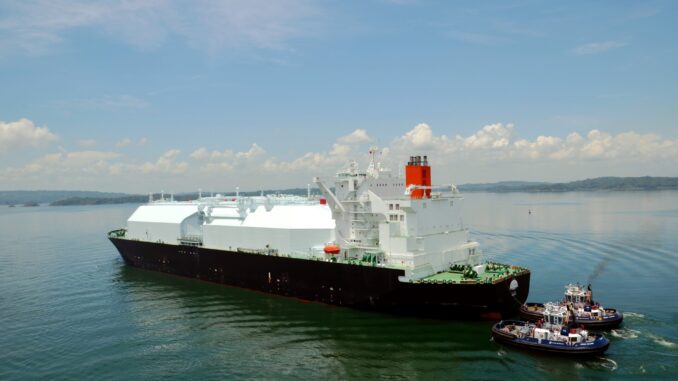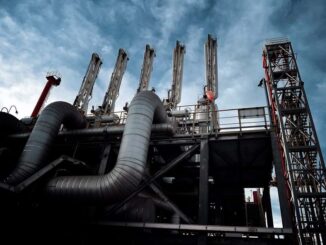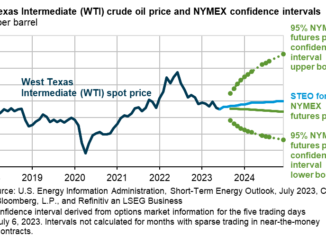
North American LNG project developers are grappling with higher construction and lending costs, which could lead to prolonged commercial negotiations and delayed final investment decisions (FIDs). About 50 million tons per year of new LNG supplies from the US and Mexico have been committed so far in 2022, driven mostly by interest from Chinese buyers and portfolio players. Two US projects, Venture Global’s Plaquemines and Cheniere’s Corpus Christi Stage 3, have been sanctioned this year.
But contracting activity has slowed since the first half of the year. Early movers have already secured volumes while cost increases driven by higher material costs and inflationary pressures have led to a gap in price expectations between sellers and buyers, market sources tell Energy Intelligence. “There might be some tension over costs pressures. Sellers are no longer offering very aggressive prices, but buyers are still expecting to secure earlier offers,” a project source says. Buyers argue that it is not reasonable for sellers to raise long-term prices too much given energy transition pressures.
Market sources peg fixed fees for recent concluded deals with new developers at $2 to $2.50 per million Btu and high $2s or low $3s with existing producers like Cheniere. Some US sellers were heard offering more than $3/MMBtu, but buyers are eyeing $2.50/MMBtu. Poten & Partners reckons US fixed fees have increased by 20¢ to 30¢ compared with prewar and pre-cost hikes, bringing 20-year contracts to $2.20-$2.25/MMBtu and up to $2.60-$2.75/MMBtu for 15-year deals.
Some US developers are looking at sanctioning more trains to improve projects’ economies of scale and bankability. NextDecade, for example, specified it will sanction three trains at its Rio Grande project, a shift from its previous guidance of “up to three trains.” The developer said the cost per ton would work out to $647/ton, based on a nameplate capacity of 17.6 million tons/yr for three trains and Bechtel’s engineering, procurement and construction (EPC) cost of $11.4 billion. NextDecade earlier received a $10 billion EPC bid from Bechtel but it expired at end-2021. “Some sellers will need to sell more volumes and may be forced to revert to their previous aggressive offers,” the source says. “This could be good news for some buyers who think they have missed the window of opportunity as they have yet to sign up new volumes.” Japanese and Korean buyers have been noticeably absent from the latest wave of deals.
A second project source notes that some of the preliminary offtake contracts were based on lumpsum turnkey (LSTK) prices established in 2018-19 but inflation has since impacted the costs of construction. “Increasing plant capacity is a good way to lower LNG unit costs, but of course then you have to sell more LNG to reach FID, which increases the difficulty,” he said. “Buyers continue to focus on pennies while market LNG prices are rising in dollars. The race to the bottom continues to intensify.” He suggested some sellers may have gone back to buyers and seek to reprice these offtake agreements.
Cost Reduction Focus
Longer EPC lead times are also driving higher costs. Poten Managing Editor Sophie Tan said the lead time for compressors has doubled to 100-120 weeks and for transformers it has increased from 50 weeks to 90 weeks. EPC bid validity has also shortened from 90 days to 30-60 days due to inflationary pressures. One way to cut costs is to delay the start of a second train much later than the first, Tan said in a webinar.
EPC contractors are also asking project developers push signing LSTK contracts to 2023 instead as costs of raw materials, such as steel and nickel, are expected to decrease. “With shorter bid validities, project developers are delaying signing EPC if they are not confident of reaching a [final investment decision] in the next three months,” Tan said.
Cost reduction will be the key focus as increasing fees is unlikely for developers due to mounting competition. Many signed contracts come with conditional precedents such as reaching an FID with an expiry date by end-2022. Developers will likely not let contracts lapse as it will be hard to get buyers back in the current market, Tan said.
While lending costs have increased, funding is still available for well-structured projects underpinned by offtake deals with creditworthy buyers. Projects not pricing against US Henry Hub will find fundraising more challenging, according to Poten. Struggling developer Tellurian, for example, priced its three 10-year deals against a hybrid of the JKM and TTF, the Asian and European benchmark hubs respectively, compared to the more traditional Henry Hub plus a fixed fee. The company is now dealing with the withdrawal of a $1 billion high-yield bond sale plus Vitol and Shell terminating their Driftwood contracts.
| YET-TO-BE-SANCTIONED NORTH AMERICAN PROJECTS WITH STRONG OFFTAKE MOMENTUM | |||
| Lake Charles | Total Capacity: 16.4 million tons/yr (Three Trains) | ||
| Buyer | Vol. (million tons/yr) | Duration (years) | SPA/HOA |
| ENN Natural Gas | 1.8 | 20 | SPA |
| ENN Energy | 0.9 | 20 | SPA |
| Gunvor | 2.0 | 20 | SPA |
| SK Gas | 0.4 | 18 | SPA |
| China Gas | 0.7 | 25 | SPA |
| Shell | 2.1 | 20 | SPA |
| Total | 7.9 | — | — |
| Rio Grande | Total Capacity: 27 million tons/yr (Five Trains) | ||
| Buyer | Vol. (million tons/yr) | Duration (years) | SPA/HOA |
| Shell | 2.0 | 20 | SPA signed in 2019 |
| Guangdong Energy | 1.0 | 20 | SPA |
| ENN Natural Gas | 1.5 | 20 | SPA |
| Engie | 1.8 | 15 | SPA |
| China Gas | 1.0 | 20 | SPA |
| Exxon Mobil | 1.0 | 20 | SPA |
| Total | 8.3 | — | — |
| Port Arthur | Phase 1 Capacity: Up to 13.5 million tons/yr (Two Trains) | ||
| Buyer | Vol. (million tons/yr) | Duration (years) | SPA/HOA |
| PGNIG | 1.0-3.0 | 20 | HOA |
| RWE | 2.3 | 15 | HOA |
| Ineos | 1.4 | 20 | HOA |
| ConocoPhillips | 5.0 | 20 | HOA |
| Total | 9.7-11.7 | — | — |
| Delfin Midstream | Four LNG Vessels Planned, Each FLNG Vessel at 3.5 million tons/yr | ||
| Buyer | Vol. (million tons/yr) | Duration (years) | SPA/HOA |
| Vitol | 0.5 | 15 | SPA |
| Centrica | 1.0 | 15 | HOA |
| Total | 1.5 | — | — |
| CP2 | Total Capacity: 20 million tons/yr (Two Phases) | ||
| Buyer | Vol. (million tons/yr) | Duration (years) | SPA/HOA |
| New Fortress Energy | 1.0 | 20 | SPA |
| Exxon Mobil | 1.0 | 20 | SPA |
| Chevron | 1.0 | 20 | SPA |
| EnBW | 0.8 | 20 | SPA |
| Total | 3.8 | — | — |
| Mexico Pacific | Total Capacity: 14.1 million tons/yr (Three Trains) | ||
| Buyer | Vol. (million tons/yr) | Duration (years) | SPA/HOA |
| Guangzhou Gas | 2.0 | 20 | SPA |
| Shell | 2.6 | 20 | SPA |
| Total | 4.6 | — | — |
| SPA: sales and purchase agreement, HOA: heads of agreement. Source: Companies | |||



